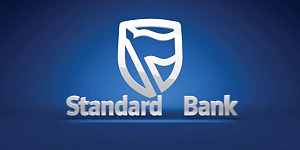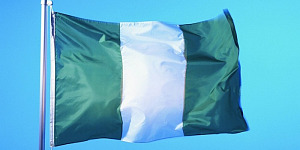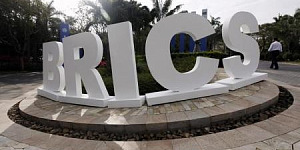Nigeria's central bank left its monetary policy rate (MPR) at 14.0 percent, as expected, saying a loosening of policy now would boost growth and demand but also aggravate the upward trend in consumer prices and generate pressure on the exchange rate, ultimately leading to a deterioration in the current account balance though higher imports.
The Central Bank of Nigeria (CBN), which has maintained its rate since raising it by 200 basis points in July 2016, added that its monetary policy committee voted by 8-1 to keep the rate steady, with one member voting to cut the rate by 100 basis points.
At its previous meeting in September, 6 members of the policy committee voted to retain the rate while one member also voted to lower it.
The decision to maintain the rate was expected and comes after the central bank's governor, Godwin Emefiele, earlier this month said he was optimistic there would be an easing of monetary policy if the pace of disinflation is adequate and inflation reaches predicted levels.
Nigeria's inflation rate fell for the ninth consecutive month to 15.9 percent in October from 15.98 percent in September, helped by a relatively stable naira and a contraction in money supply. This year inflation hit a high of 18.72 percent in January and has been falling ever since.
During its two-day meeting, the bank's monetary committee also discussed raising the key rate as this would strengthen the impact of its policy on inflation, along with capital inflows and exchange rate stability, but it would also dampen the positive outlook for growth and financial stability.
The argument to maintain the rate won the day, with the committee saying economic variables have continued to evolve in line with its current stance and should be allowed to fully manifest but economic output and inflation in particular "required effective close monitoring in order to gain clarity on the medium optimal path of monetary policy."
After suffering the worst economic slump in 25 years in 2016, Nigeria's economy is starting to recover, with inflation trending downward and the exchange rate of the naira stabilizing.
Gross Domestic Product grew by an annual rate of 1.4 percent in the second quarter, up from 0.72 percent in the first quarter as the country pulls out a 1.6 percent contraction in 2016.
The International Monetary Fund has forecast 2017 growth of 0.8 percent and 1.9 percent next year as the output of oil, Nigeria's largest export, rises and results in more available foreign currency, which then allows factories and other businesses import goods.
Nigeria has been suffering from a shortage of U.S. dollars since the fall in crude oil prices in 2014 but has slowly been easing some of the restrictions and capital controls that were imposed in 2015 to shore up the naira's exchange rate.
The central bank operates a series of exchange rates in addition to the official rate. Last week the central bank sold U.S. dollars at 306 naira but for investors the naira is still quoted around 360 per dollar.








































